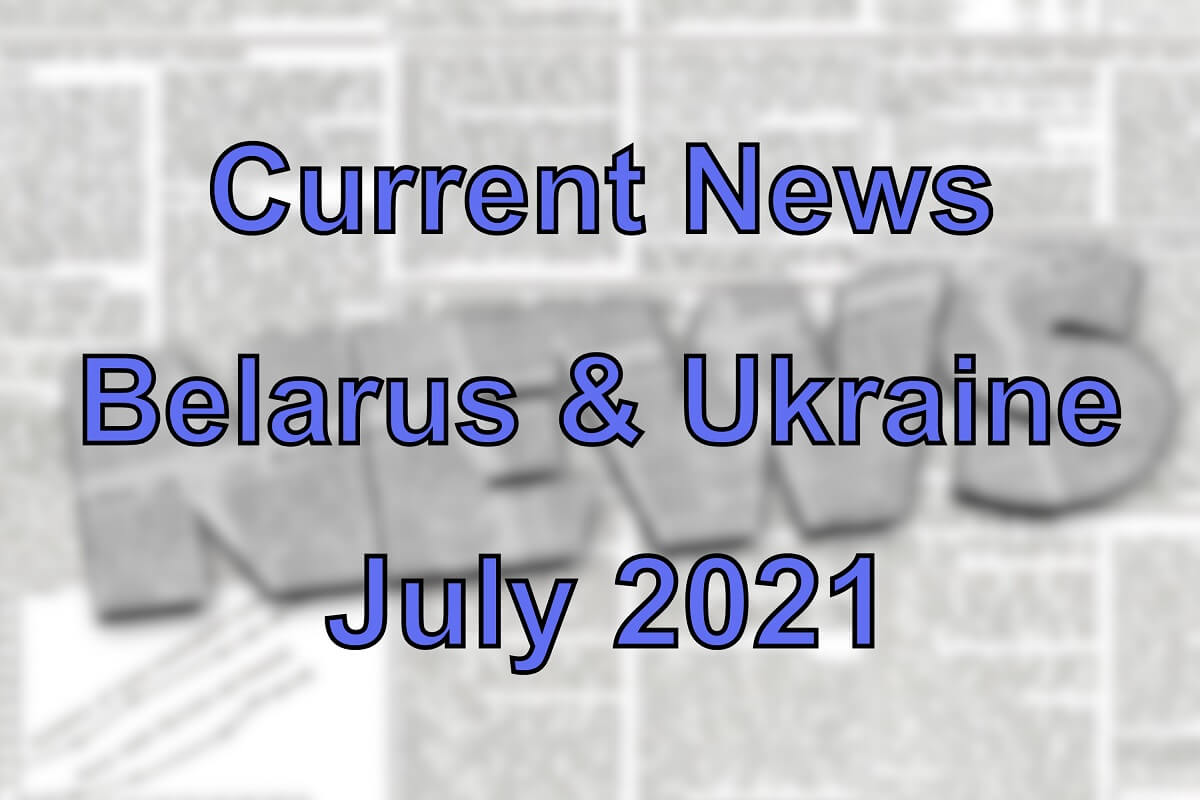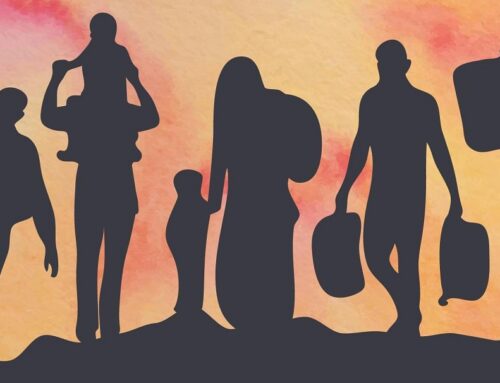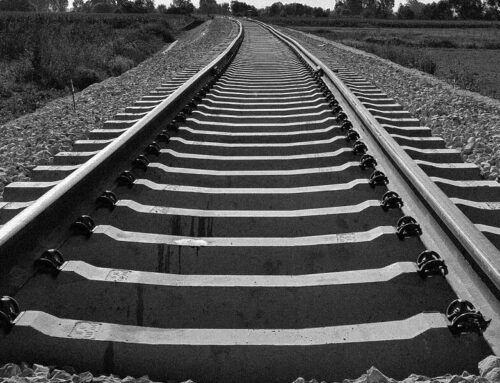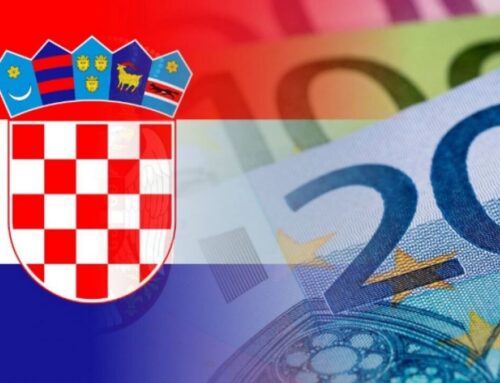Belarus
Tikhanovskaya’s visit to the US
Leader of Belarusian opposition Svetlana Tikhanovskaya arrived in Washington in hope to gain support from the USA. On Monday (July 17), the exiled politician had a meeting with US Secretary of State Antony Blinken – the highest level politician to meet her so far.
Despite having apparently a productive discussion hinting at the US assistance in promoting democratic changes in Belarus, it remained unclear whether US President Joe Biden will be able to meet the Belarusian leader in person. Prior to continuing her American tourné, Tikhanovskaya is scheduled to meet with national security adviser Jake Sullivan, US Agency for International Development Administrator Samantha Power representatives along with other politicians in Washington.
After running for presidency in the August 2020 elections against Belarusian strongman Aleksander Lukashenko, in which Tikhanovskaya is said to have won, she was forced into exile in Lithuania. Meanwhile, the Belarusian regime has repeatedly tried to get her extradited, albeit facing rejection on the part of Lithuanian authorities.
Lukashenka’s witch hunt
Belarusian President Alexander Lukashenko on July 2 announced that “terrorist sleeper cells” were exposed in the country. According to him, these so-called self-defense units that are linked to Germany, the United States, Ukraine, Poland, and Lithuania were aiming at overthrowing the regime.
Lukashenko said that the “sleeper” cells tried to target a Russian naval communication centre near the Belarusian town of Vileyka. The incident was also discussed during his meeting with Vladimir Putin in St. Petersburg.
Lukashenko, who assumed presidential reigns in 1994, recently outraged the international community by intercepting and forcing the landing of a Ryanair plane flying from Greece to Lithuania with dissident journalist Roman Protasevich on board. The West reacted by imposing strict sanctions on key sectors of the Belarus economy in June. In a retaliatory fashion, Minsk suspended its participation in the Eastern Partnership framework and resorted to putting pressure on neighboring countries by facilitating the flow of illegal migrants.
Belarus and Russia
Belarusian leader Aleksander Lukashenko during his visit to Russia (July 13) promised Vladimir Putin that Minsk will fulfill its financial obligations to Moscow ‘at any cost’. Such remarks were made against the backdrop of Western economic sanctions imposed on the Belarusian regime.
This process is likely to drag Belarus even closer to the Russian sphere of influence. Lukashenko’s statements blaming the West for ‘individual terror’ against Belarus and at the same time thanking Russia for being a ‘reliable economic partner’ have only highlighted his need for a shoulder of another strongman and a close ally, namely Putin.
Belarus and Migrant Crisis
Lithuania accused Belarus of facilitating illegal migration as a means of putting pressure on the neighboring state (July 12). European Commissioner for Home Affairs Ylva Johansson called it unacceptable to resort to this sort of practice. Meanwhile, Vilnius declared a state of emergency due to the ongoing border crisis.
Lithuanian authorities have detained a total of 1,676 migrants, mostly from Middle Eastern and African countries, on the border with Belarus this year so far, 20 times more than last year. A majority of those who have crossed the Lithuanian border are Iraqi nationals. Residents from Congo and Cameroon also featured prominently alongside Iranians and Syrians.
The EU has mobilised the bloc’s border control agency, Frontex, to assist the Lithuanian government during the crisis. The European Commission is planning to allocate 10 million euros to Lithuania in August to help it cope with an influx of migrants via neighboring Belarus. At the same time, Lithuanian Prime Minister Ingrida Shimonyte unveiled plans of building a physical barrier alongside the Belarusian border to counter illegal migration.
Lukashenko reacted to these developments by signaling to Lithuania that he will not stop the migration surge to Lithuania and reducing to the minimum the number of Belarusian diplomats in Vilnius.
Belarus and Freedom of Press
The Belarusian regime has increased pressure on independent media by conducting searches, detaining journalists, and closing news organizations.
As AP reported (July 9), the Belarusian Association of Journalists, or BAJ, said that authorities conducted searches at Nasha Niva’s offices and detained chief editor Yahor Martsinovich, journalists Andrey Skurko, Andrey Dynko and office accountant Volha Rakovich (was released later) for questioning. Also, Belarus’ Information Ministry said it has blocked Nasha Niva’s website after the prosecutor general’s office accused it of posting unspecified unlawful information.
The recent cycle of repressions followed after the forced closure of the leading Belarusian news portal Tut.by and detainment of its journalists in May. Also, that month Belarusian authorities forcefully diverted a Ryanair flight to Minsk and arrested dissident journalist Roman Protasevich, resulting in heavy sanctions from the European Union. Meanwhile, Belarusian authorities have not stopped crackdowns on independent media, as more news on raids and detentions are coming in.
Ukraine
Turkey Building a Corvette for Ukraine
Turkey has begun the construction of a military corvette for the Ukrainian Navy. As President Volodymyr Zelenskyy said on July 4 in Odesa during the celebration of the Day of Ukrainian Naval Forces, his country will be able to receive the new addition to its fleet by 2023.
Moreover, he mentioned that Ukraine will receive Bayraktar drones from Turkey that will be introduced in the country’s air forces. Meanwhile, Ukrainian servicemen who are planned to operate new drones are completing their training in Turkey.
Turkish drones supplied to Ukraine
Ukraine’s navy has acquired the unmanned aerial system Bayraktar TB2, the first out of six purchased from Turkey (news from July 15).
It is designed to carry up to 4 high-precision missiles at a maximum flight speed of 222 kilometers per hour with a flight ceiling of 6,750 meters.
In 2019, Ukraine ordered six Bayraktar TB2 units for the Armed Forces after tactical and operational tests, to the value of $69 million. In 2020, the Ukrainian military tested the model in large-scale live-fire exercises. Later, the drones flew their first mission in the Joint Forces Operation zone, scouting enemy equipment.
According to the Minister of Defense Andriy Taran, the drone will be used by the Navy to monitor and defend the Black Sea and Azov Sea coastlines.More drones are expected to arrive under an agreement signed between Ukraine and Turkey this December.
‘Mosquito fleet’
Ukraine is working on getting a ‘mosquito fleet’ for its navy no later than 2022, country’s Minister of Defense Andriy Taran announced it in Vilnius on July 7th.
‘I don’t want to go into details, but right now we’re creating a so-called ‘mosquito fleet’. Not just a ‘mosquito fleet’ without any capabilities. What we are trying to do is to give these ‘mosquitoes’ modern combat capabilities,’ Ukrinform cites Taran. He also expressed hope that the creation of such a fleet consisting of “small ships but with real combat capability” will be aided by the United States and Great Britain. Currently, as the minister explained, Ukraine remains practically defenseless against potential attacks from the sea.
As part of the large modernization process of the Ukrainian military, the country’s Navy will also be equipped with a new anti-ship missile system based on land and helicopters with upgraded capabilities allowing them to strike enemy ships.
Military Exercises
A series of military exercises is ongoing in Ukraine involving western armed forces. Specifically, from June 28 to July 10, Ukraine and NATO conducted the Sea Breeze 2021 drills in the Black Sea that became a signal of their strong relations against the backdrop of the Russia – Britain confrontation involving a UK destroyer approaching Crimea in June.
32 countries and 40 ships participated in the maneuvers this year, making the scale of the exercises bigger than in 2019. Also, the involvement of Japanese and Australian troops (the South Korean Navy skipped the exercises) on a par with their western allies demonstrated a united stance against possible provocations in the region.
Russia called the drills a ‘provocative muscle-flexing game’ raising risks of armed incidents and began testing air defense systems in Crimea deploying aviation and S-400 surface-to-air missile systems.
Another series of international military exercises, the Cossack Mace 2021 started in Ukraine’s Nikolaevskaya oblast on July 12 and will last until July 24. Among the participants are representatives of the armed forces of Britain, Canada, the United States, and Sweden.
In total, about 2,000 servicemen and more than 300 units of military equipment are taking part in the exercises.
The Ukraine Peace Process
On July 7, Ukrainian President Volodymyr Zelenskyy once again suggested expanding the Normandy format or creating a new platform for resolving the Donbas conflict in Ukraine.
According to Zelenskyy, the participation of ‘strong countries, powerful geopolitical players’ can influence Russia in a way that would put an end to the war in Ukraine’s eastern regions where, as the Red Cross reported, the humanitarian situation has significantly worsened this year compared to 2020.
A few days later, on July 12, during a joint briefing with Angela Merkel ahead of their talks Zelenskyy called on the US active role in the peaceful settlement of the Donbas conflict.
Moscow reacted predictably in its regular fashion slamming the proposal of the Ukrainian leader and accusing him of trying to erode the existing Minsk agreements and portraying Russia as a party of the ongoing conflict. The Kremlin has repeatedly abstained from admitting any participation in the confrontation in East Ukraine.
Caught up in semantics
On July 14, the Constitutional Court of Ukraine recognized the law ‘On Ensuring the Functioning of the Ukrainian Language as the State Language’ as constitutional. Partly, some of the rules of this law have been in force since 2019.
The new rules that were added to the law outline a requirement of using the state language – Ukrainian – when providing customer service. Specifically, it applies to a large variety of businesses and institutions (including online stores) that provide commercial, health, social, legal, educational, transport, and other services.
The amended law entered into force on July 16 and caused an immediate reaction from Moscow with certain lawmakers accusing the new legislation of violating human rights by depriving Russian-speaking citizens of Ukraine of the right to participate in the social life of the country in their native language.
Previously a similar wave of outrage on the part of Russia was caused by the Ukrainian parliament passing a bill ‘On the Indigenous Peoples of Ukraine’ proposed by Volodymyr Zelenskyy. The bill excluded ethnic Russian from the list of ‘indigenous’ peoples of the country whose interests are to be protected (ethnic Ukrainians are not on the list either). Russian leadership compared the introduction of the law with racist practices of Nazi Germany. Volodymyr Zelenskyy, meanwhile, said that the Ukrainian government is ready to protect any national community residing in the country, including those that are not historically indigenous to it.
Zelenskyy meeting Merkel
On July 12, Ukrainian President Volodymyr Zelenskyy visited Berlin for a meeting with German Chancellor Angela Merkel in an apparent attempt to get security guarantees amid growing concerns regarding the Russian Nord Stream 2 project.
Despite the discontent of Kyiv with Berlin’s backing the construction of the pipeline, Zelensky said he was satisfied with the meeting with Angela Merkel. Ukraine, according to him, receives at least $2 billion for transit of Russian gas and oil, however, the construction of the Nord Stream 2 will threaten Kyiv’s both energy and financial security.
This position was delivered to Merkel, which is why she promised to guarantee Ukraine’s status as a transit country of Russian gas even when the Nord Stream is completed.
Putin’s article on Ukraine
On July 12, the Kremlin published a 5000-word article written by Russian President Vladimir Putin where he concludes that Ukrainians and Russians are essentially one people and Ukraine’s independence is a fluke of history.
Ukrainian President Volodymyr Zelenskyy reacted ironically to the article making a snarking remark that he was envious of how much free time the Russian leader had on his hands to research the history of the two nations. He also said that the two counterparts could have discussed Putin’s article in person and Zelenskyy offered to give the Russian President a lot of materials for another article on the issue. So far, the Kremlin has been consistently avoiding contacts with Zelenskyy.
Currently, the relations of the two ‘brotherly’ nations, as Putin calls it, are stranded by the ongoing conflict in Donbas which has already left more than 13,000 dead.




